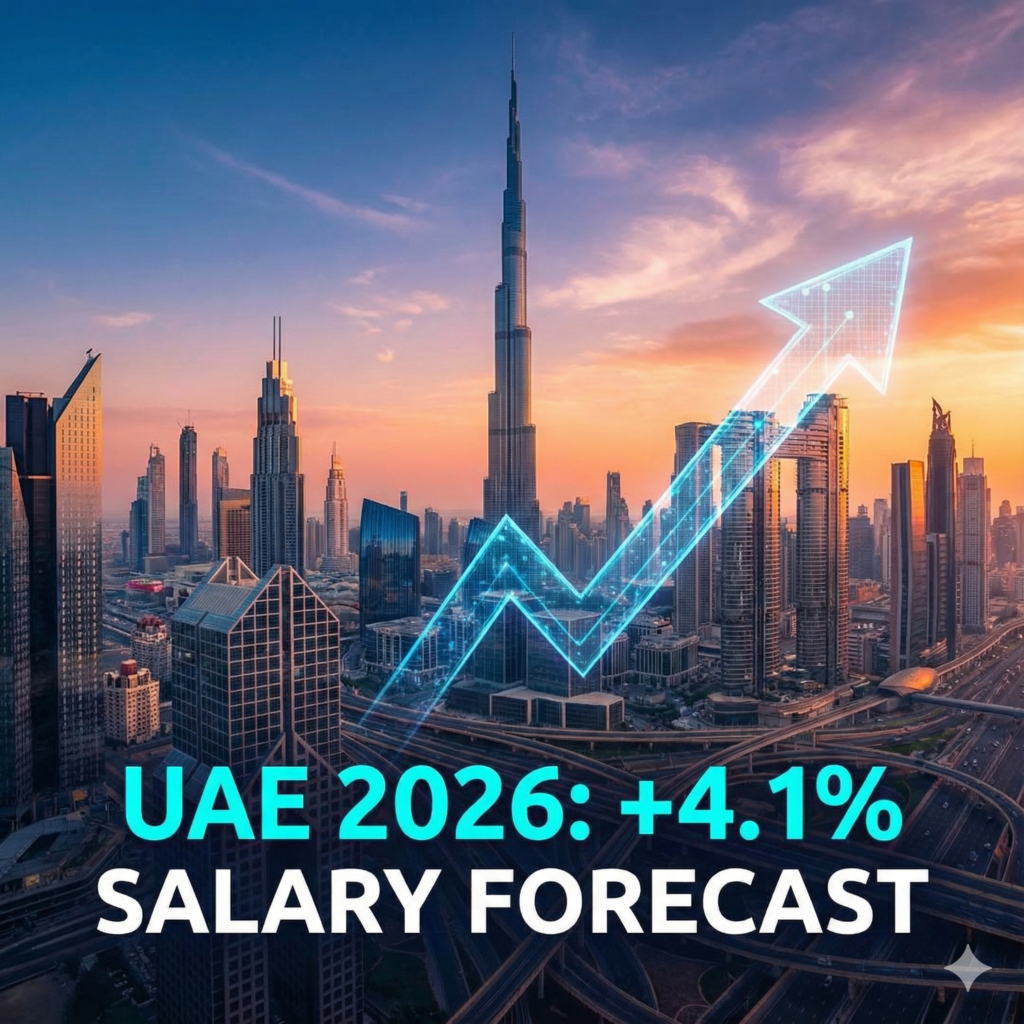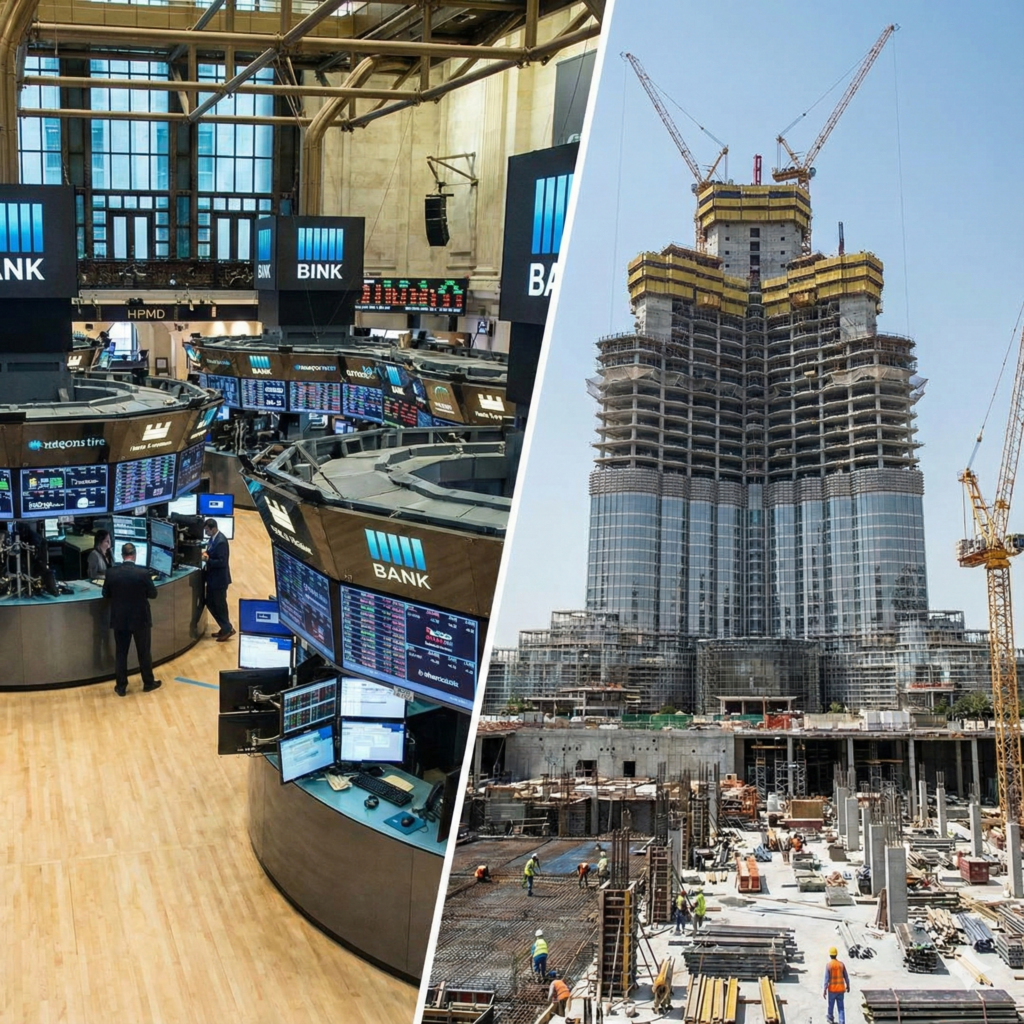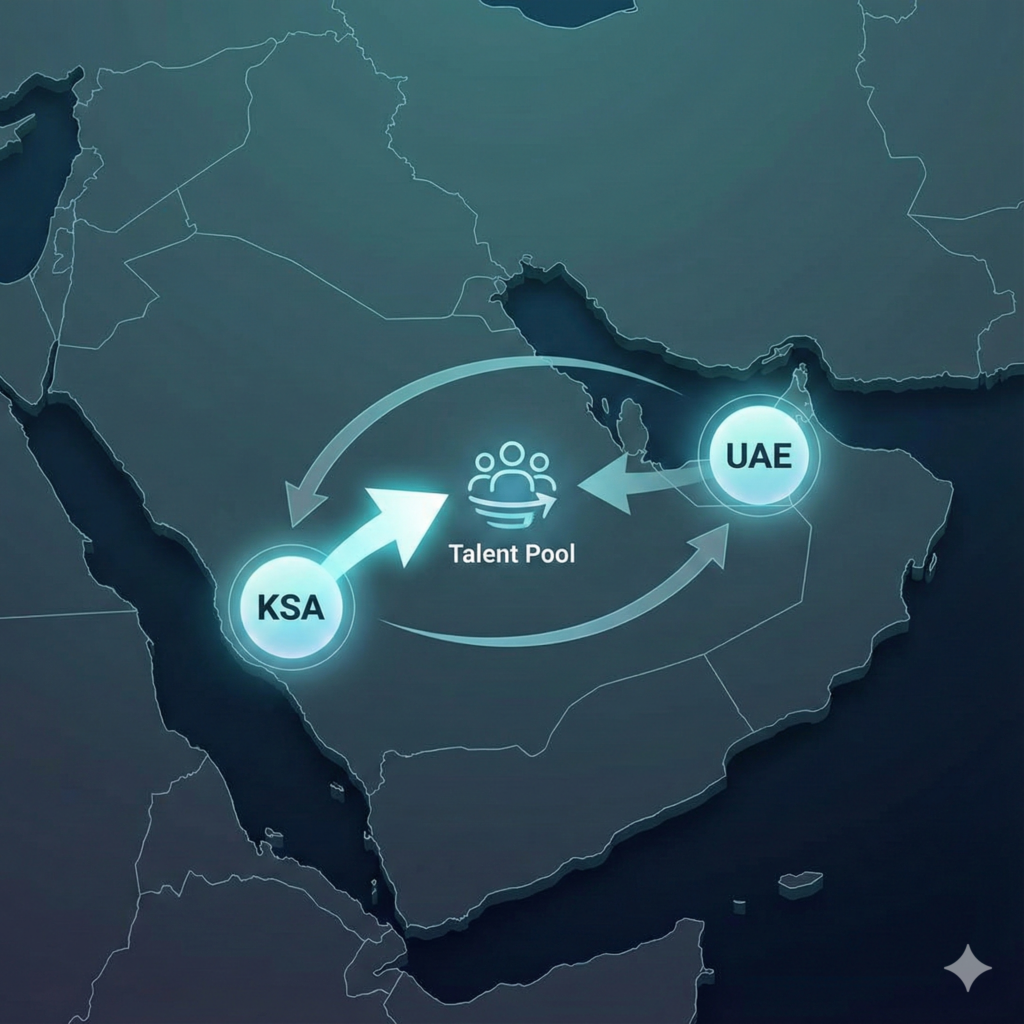UAE Salary 2026 continues to cement its position as one of the world’s most attractive employment destinations, and recent forecasts suggest that 2026 will bring positive news for employees across the nation. According to a comprehensive report by Korn Ferry, one of the world’s leading consulting firms, employees in the UAE can expect an average salary increase of 4.1% in 2026. This projection, based on data from over 1,000 organizations and 400,000 employees, reflects a competitive job market driven by sustained economic growth and strategic sector development.
UAE Salary 2026 the 4.1% Increase
While the forecasted 4.1% salary increase represents a slight decline from the 4.2% raise granted in 2025, it remains a positive indicator of the UAE’s robust economic health. This projection demonstrates that companies are actively competing to offer better compensation packages despite facing inflation pressures and rising operational costs. The slight moderation from the previous year’s figure shouldn’t be viewed as a setback, but rather as evidence of market maturity and more strategic compensation planning by employers.
Vijay Gandhi, Regional Director at Korn Ferry, emphasized this evolution in approach, noting that the UAE has reached a level of market sophistication where compensation planning is no longer merely reactive. Organizations are now focusing on building the right capabilities for the next five years, which requires more sophisticated reward and development strategies. This shift signals a move from short-term salary adjustments to long-term talent investment, which ultimately benefits both employers and employees.

Also Read: The Golden Opportunity: Advantages of Dubai’s Golden Visa
Banking and Real Estate: Leading the Charge
The Korn Ferry report identifies specific sectors that are expected to offer the most substantial salary increases in 2026. Banking and real estate stand at the forefront of this positive trend, alongside oil and gas, industrial, and retail sectors. These industries are being supported by ongoing investment pipelines and the adoption of new operating models that require skilled talent.
The banking sector’s strong performance is hardly surprising given the UAE’s position as a regional financial hub. With growing fintech innovation, increased regulatory sophistication, and the expansion of Islamic finance, banks are competing fiercely for professionals with expertise in compliance, risk management, investment banking, and digital transformation. The sector’s ability to offer premium compensation reflects both its profitability and the critical nature of the skills it requires.
Real estate, another leading sector for salary growth, continues to benefit from the UAE’s booming property market. The sector has experienced remarkable expansion, with real estate job postings surging and development activity reaching unprecedented levels. The ongoing delivery of major projects, coupled with sustained investor demand and population growth, has created intense competition for professionals in development, design, project management, and sales. This demand is expected to remain strong through 2026 and beyond as unit handovers from current construction pipelines continue.

Also Read: Disney’s Magic Comes to the Middle East
Regional Competition and Talent Retention
The salary landscape in the UAE cannot be viewed in isolation from broader GCC dynamics. According to the Korn Ferry forecast, Saudi Arabia leads the region with an average salary increase of 4.6%, followed by Qatar and Oman at 4.3%, with the UAE at 4.1%. This regional context is crucial because the heightened competition within the GCC, particularly from Saudi Arabia’s ambitious national transformation programs, is placing pressure on UAE firms to offer compelling career opportunities.
Saudi Arabia’s giga projects and Vision 2030 initiatives have created thousands of high-paying positions, leading to talent migration within the region. UAE employers are responding by not only increasing salaries but also emphasizing quality of life, career development opportunities, and the country’s established infrastructure and cosmopolitan lifestyle as differentiators.
The Cost of Living Factor
One of the driving forces behind salary increases in the UAE is the rising cost of living, particularly in housing and education. These two categories represent significant expenses for both Emirati nationals and expatriates, and employers recognize that compensation packages must keep pace with these costs to maintain employee satisfaction and retention.
Research from Korn Ferry reveals a striking statistic: 80% of employees in the UAE and Saudi Arabia are willing to switch jobs for better pay. This represents a dramatic 25% rise from the previous year and signals a critical shift in employee attitudes. The willingness to move for higher compensation puts additional pressure on employers to ensure their salary offerings remain competitive not just within their industry, but across the entire job market.
This trend is particularly significant in the context of the UAE’s rapidly growing population. Dubai’s population recently surpassed four million residents, while the UAE’s total population reached 11.44 million in 2025. This influx of talent creates both opportunities and challenges—while employers have access to a larger talent pool, they must also work harder to retain their best employees in an increasingly mobile workforce.
Sector-Specific Insights
Beyond banking and real estate, several other sectors are positioned for strong salary growth in 2026:
Oil and Gas: Despite global energy transition efforts, the oil and gas sector remains a cornerstone of the UAE economy. With major players continuing to invest in both traditional and renewable energy projects, demand for experienced professionals in engineering, project management, and environmental compliance remains robust.
Industrial: The UAE’s push for economic diversification has strengthened its industrial base. Manufacturing, logistics, and supply chain management professionals are seeing increased demand, particularly those with expertise in automation, sustainability, and regional distribution networks.
Retail: The retail sector’s resilience and growth, fueled by tourism and a expanding resident population, continues to drive demand for professionals in store management, e-commerce, and customer experience roles.

Also Read: OpenAI’s Abu Dhabi Datacenter: A Global AI Strategy
Challenges for Young Professionals
While the overall UAE Salary 2026 outlook is positive, the report notes specific challenges for younger professionals. Anis Abdeljawad of Korn Ferry observed that young professionals face a “slow-moving reset” in their careers due to longer hiring cycles and smaller raises compared to more experienced workers. This generational disparity reflects employers’ preference for proven track records and UAE-specific experience.
Additionally, the impact of artificial intelligence on employment patterns cannot be ignored. The report indicates that 43% of companies plan to replace certain roles with AI, primarily targeting operations and back-office positions. This technological shift could potentially reshape future leadership pipelines and emphasizes the importance of continuous skill development and adaptation for professionals at all career stages.
Strategic Implications for Employees
For employees in the UAE, the 2026 salary forecast offers several key takeaways:
First, specialization matters more than ever. Those with deep expertise in high-demand areas such as AI, data science, compliance, sustainable finance, or project management are better positioned to command premium salaries and negotiate favorable terms.
Second, UAE experience carries significant weight. Employers increasingly value candidates with proven track records in the local market, understanding of regional business practices, and established professional networks. New arrivals to the country may need to accept initial packages below their expectations as they establish themselves.
Third, compensation extends beyond base salary. While the average salary increase is 4.1%, total compensation packages including bonuses, allowances, and benefits can vary significantly. Employees should evaluate opportunities holistically rather than focusing solely on base pay.

Also Read: UAE Golden Visa: 7 New Categories for Long-Term Residency
Employer Perspectives
From an employer standpoint, the UAE Salary 2026 landscape requires a balanced approach. Companies must offer competitive compensation to attract and retain talent while managing costs and maintaining profitability. The shift toward more strategic compensation planning reflects this need for balance.
Many organizations are moving away from across-the-board increases toward more targeted raises that reward high performers and individuals in critical roles. This performance-based approach aligns compensation with business outcomes and helps organizations optimize their talent investment.
Long-term incentive plans are also becoming more common, particularly in banking, real estate, and consulting. These plans help retain key employees by tying a portion of their compensation to long-term company performance and personal tenure.
Looking Ahead
The 4.1% average salary increase forecast for 2026 positions the UAE as a competitive and attractive employment destination within the region and globally. While individual experiences will vary based on sector, role, experience, and performance, the overall trajectory remains positive.
The continued strength of banking and real estate sectors, combined with growth in technology, energy, and professional services, suggests that the UAE’s economic diversification strategy is yielding tangible results for employees. As organizations invest in building capabilities for the future, employees who embrace continuous learning, develop in-demand skills, and demonstrate adaptability will be best positioned to benefit from the opportunities ahead.
The UAE’s appeal extends beyond salary figures. The country’s tax-free income, world-class infrastructure, safety, quality of life, and position as a regional business hub continue to attract talent from around the world. As we move into 2026, these factors, combined with positive salary growth, reinforce the Emirates’ status as a premier destination for ambitious professionals seeking rewarding careers in a dynamic, forward-looking environment.
For both employers and employees, 2026 represents an opportunity to align compensation strategies with long-term value creation, ensuring that the UAE’s workforce remains motivated, competitive, and capable of driving the nation’s continued economic success.

Also Read: Harnessing Influencer Marketing to Drive Dubai Tourism
Conclusion
The Korn Ferry forecast of a 4.1% average salary increase for UAE employees in 2026 delivers a message of optimism and opportunity. While the figure represents a modest adjustment from the previous year, it reflects a maturing market where strategic talent management takes precedence over reactive compensation adjustments. The UAE continues to demonstrate its commitment to remaining a globally competitive destination for professionals across all sectors.
For employees, particularly those in banking, real estate, and other high-growth industries, 2026 promises tangible rewards for their contributions. However, success in this evolving landscape will require more than simply showing up—it demands continuous skill development, adaptability to technological change, and a willingness to embrace new ways of working. Those who invest in building expertise in emerging areas such as artificial intelligence, sustainable finance, and digital transformation will find themselves in the strongest negotiating position.
For employers, the challenge lies in balancing competitive compensation with strategic workforce planning. The data showing that 80% of employees are willing to switch jobs for better pay serves as a clear reminder that retention requires more than adequate salaries—it demands comprehensive packages that address cost of living concerns, career development opportunities, and meaningful work experiences.
Looking beyond 2026, the trajectory appears promising. The UAE’s economic diversification efforts are bearing fruit, with multiple sectors showing strength and resilience. The government’s forward-thinking policies, coupled with private sector innovation and investment, create an environment where both businesses and employees can thrive.
In essence, the 4.1% salary forecast is more than a number—it’s a reflection of confidence in the UAE’s economic future. It signals that organizations are willing to invest in their people, that the job market remains competitive and dynamic, and that the Emirates continues its journey toward becoming one of the world’s most attractive places to live, work, and build a career. For professionals considering opportunities in the UAE or those already established in the market, 2026 offers a landscape rich with possibility, rewarding hard work, expertise, and ambition with tangible financial progress and career advancement.
Which sectors are expected to drive the highest salary growth in 2026, and what is the overall forecast?
The overall average salary increase for 2026 is forecasted at 4.1%. The sectors leading this growth are Banking and Real Estate, driven by the UAE’s status as a financial hub and a booming property market. Other strong performers include the Oil & Gas, Industrial, and Retail sectors, all of which are supported by sustained economic growth and ongoing investment projects.
How does the UAE’s salary outlook compare to the rest of the GCC, particularly Saudi Arabia?
While the UAE’s 4.1% increase is positive, it is slightly lower than Saudi Arabia (4.6%) and comparable to Qatar and Oman (4.3%). This regional disparity is significant because Saudi Arabia’s “giga projects” and Vision 2030 initiatives are creating high-paying positions that attract talent away from the UAE. Consequently, UAE employers are pressured to offer competitive packages and emphasize quality of life to retain skilled professionals in this competitive regional market.
What specific challenges are facing young professionals and the workforce regarding Artificial Intelligence (AI)?
Young professionals are facing a “slow-moving reset,” characterized by longer hiring cycles and smaller raises compared to experienced colleagues, as employers prioritize proven track records. Additionally, the report notes that 43% of companies plan to replace certain roles with AI, specifically targeting operations and back-office positions. This signals a critical need for employees to focus on upskilling and specialization to remain secure in the future job market.

